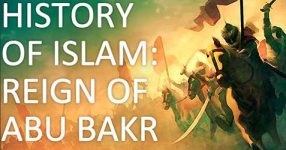The Reconquista, a 781-year saga of medieval valor, chronicles the Christian War of Reconquest against Islamic Spain. A turbulent narrative, it reflects the resilience of Christian kingdoms in the face of adversity. From the Battle of Covadonga in 718 to the decisive Battle of Las Navas de Tolosa in 1212, this epic journey shaped the destinies of nations.
The Early Struggles:
Initiating in 718 at the Battle of Covadonga, the Reconquista initially manifested as a resistance. The northern Christian kingdoms, including Asturias, Leon, Castile, Navarre, Aragon, and Portugal, faced challenges but clung to survival. The 11th century marked a pivotal shift, as the Christians began reclaiming Spanish territories, setting the stage for the forthcoming conflicts.
Complex Dynamics of the Reconquista:
Lasting from the 8th to the 15th centuries, the Reconquista unfolded as a multifaceted conflict between Christian kingdoms and Muslim Caliphates. Periods of both war and peace characterized the intricate dance of alliances and rivalries. Early victories for Christians gave way to challenges with the rise of Almoravid and Almohad dynasties in the 11th century.
Decisive Turning Point: The Battle of Las Navas de Tolosa:
The pivotal moment in the Reconquista materialized in 1212 at the Battle of Las Navas de Tolosa. King Alfonso VIII of Castile led a Christian army to a resounding victory over the Almohads, signaling the decline of Muslim rule in Spain. This triumph marked the beginning of the end for the Almohad dynasty, paving the way for Christian kingdoms to consolidate their gains.
Legacy and Impact:
The Reconquista’s impact extended far beyond military conquests. It profoundly shaped the identities of Spain and Portugal, leaving an indelible mark on their art, architecture, and literature. The conflict’s significance reverberated across Europe, influencing the course of history by checking the spread of Islam and fortifying the Christian kingdoms of the Iberian Peninsula.
Key Milestones in the Reconquista:
- 711: Muslim conquest of Iberia begins with the Battle of Guadalete, defeating the Visigothic king Roderic.
- 722: Battle of Covadonga, considered the starting point of the Reconquista, with Pelagius leading a victorious Asturian army.
- 10th-11th centuries: Rise of Almoravid and Almohad dynasties briefly unifies Muslim Spain.
- 1212: Battle of Las Navas de Tolosa, a turning point as King Alfonso VIII secures a decisive victory over the Almohads.
- 1236: Conquest of Córdoba by Ferdinand III of Castile.
- 1248: Conquest of Seville by Ferdinand III of Castile.
- 1492: Fall of Granada to Ferdinand and Isabella, marking the end of Islamic rule in Spain.
In conclusion, The Reconquista stands as a testament to human endurance and the complex interplay of historical forces. Its echoes resonate in the cultural fabric of Spain and Portugal, a living legacy of a remarkable chapter in history.












